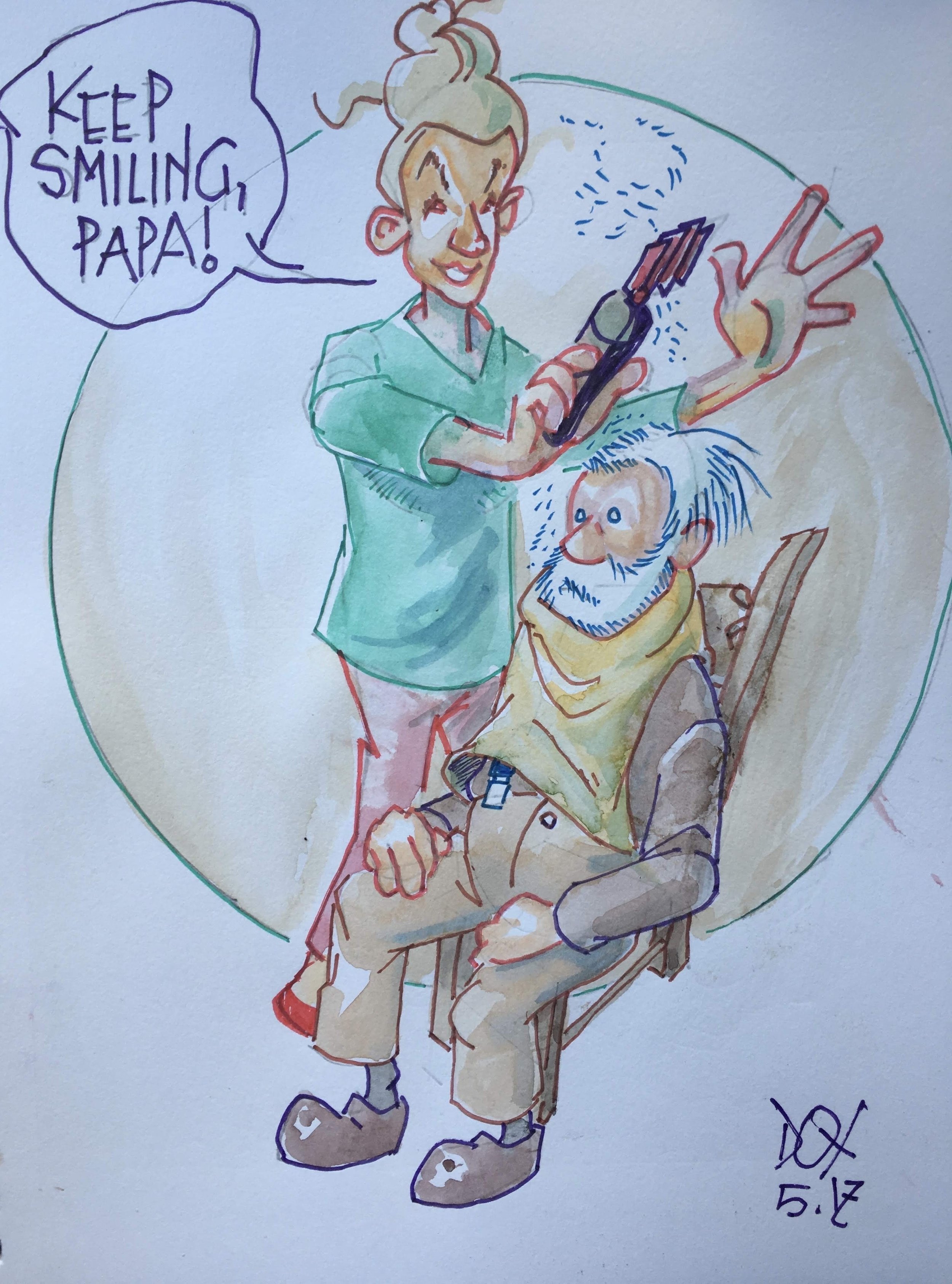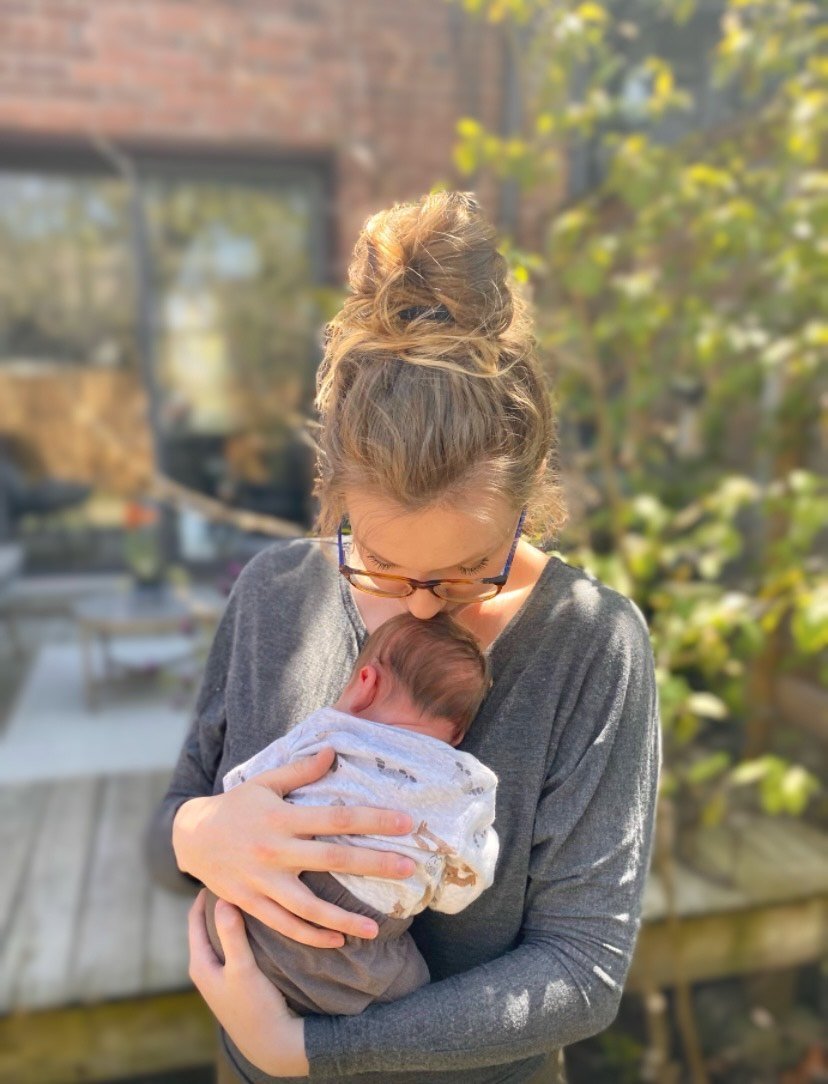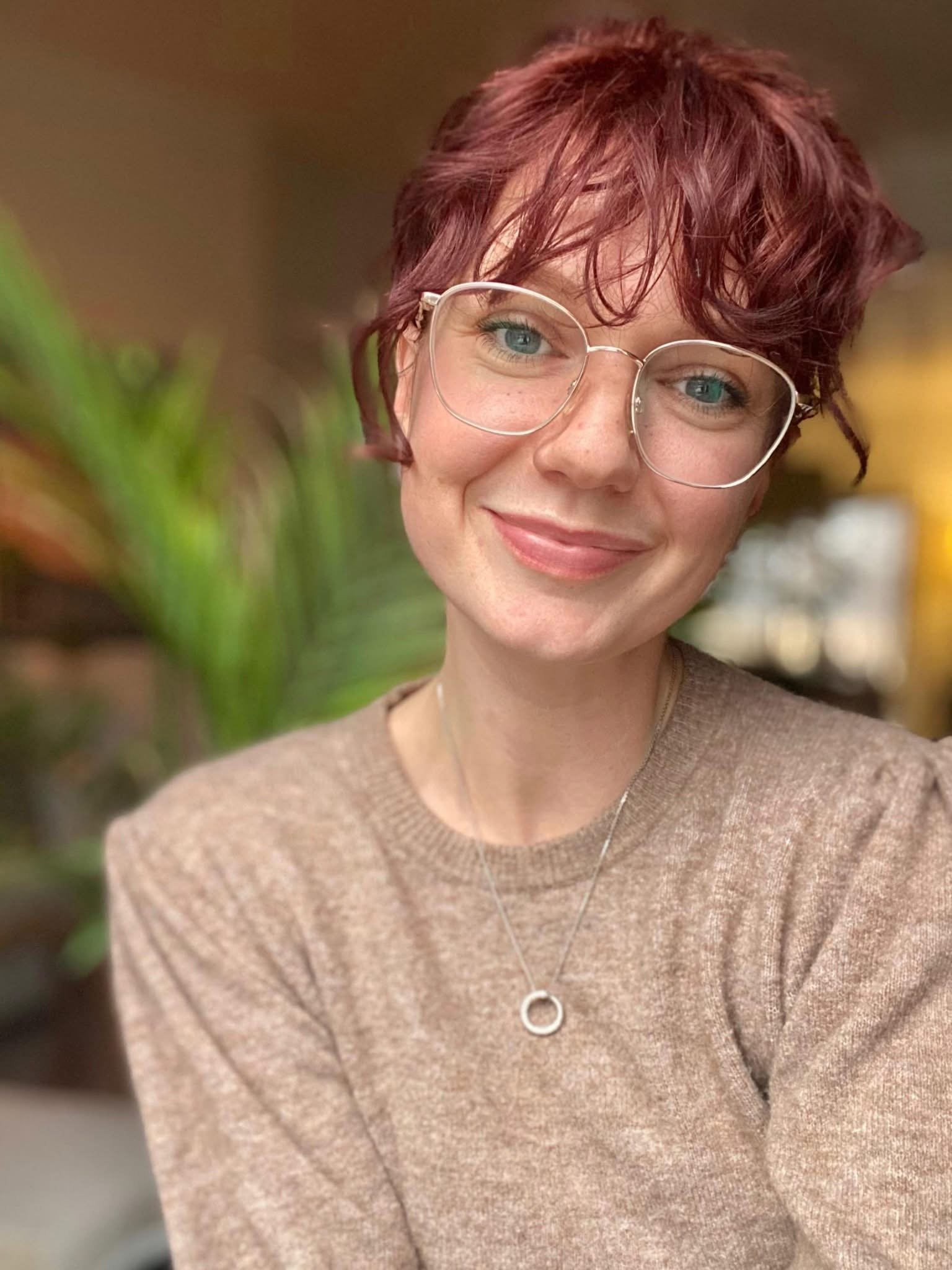The Origin Story of a Death Doula
Kate gives her grandfather, Papa, a haircut near the end of his life. With the ending of his life, came the beginning of something else.
Ever since I was little, I have loved origin stories. Movie prequels, villain arcs, biographies.
Anything that gave me the why behind the tale we think we know. I loved that they seem to give you the “behind the scenes”, the aspirations and motivations; one’s own version of reality.
I am here to tell you my origin story: how I chose to become a death doula, and just how much it means to me.
My journey to becoming a death doula began in 2017, with the death of my grandfather, whom I called Papa. Papa and I were incredibly close. He was a vivacious cartoonist, working for newspapers throughout his career doing political cartoons, and documenting many generations of our family’s adventures through his illustrations. My parents have dozens and dozens of volumes of his works, which we pull out from time to time to remember times gone by.
Papa and I shared a love for linguistics, specifically etymology, and could chat for hours about intriguing words we had stumbled upon and where they came from. When I was little, we loved to “play hooky” from family errands so we could stay home together and draw, safe from the chaos of the shopping mall. After a very full 83 years, with a presence bigger than life itself, he died in a residential hospice, on December 7, 2017.
And with the end of his life, came the beginning of something else.
Kate, founder of DOX Death Doula, and her beloved Papa.
Papa spent 41 days in hospice. The first of those 41 days is all it took to entirely turn my view on what dying looked like on its head. I had always thought death to be grim, depressing, empty; nothing but loss. Cold. I had seen loved ones die in the muted-toned, sterile environment of a hospital – but I had never before experienced a residential hospice. From the moment we arrived, we felt warmth.
Lit by lamp-light, a kitchen emitting the smell of cookies baking and smiles from the dedicated volunteers that greeted us.
I can still get weird looks when describing Papa’s death as comfortable or as a “positive experience”. But it was. His death mirrored that of his life: full of love, a feeling of contentment.
Papa had his hand held and hair brushed. He got all his favourite music. Pancakes made-to-order. And most importantly, copious amounts of chatting and quality time. Liberal visiting hours meant we could sit vigil – before, during and after his death. A group of chairs encircled his bedside every day for 41 days: various combinations of our family came, from different cities and even different countries.
Lifelong friends. Volunteers. We joked, we sang, we reminisced on years of memories that he had accumulated. A life lived fully.
Kate felt supported and celebrated in birth and postpartum.
I started volunteering at a residential hospice near me shortly after Papa’s death. I wanted to be a part of this experience for residents and their families.
If I could give back even a fraction of the love we had received, that would be enough. And I loved it. I felt a sense of fulfilment, and I could, for the first time, feel as though I had a career destination. This was the first time I had felt so passionately about my purpose. I finished the Linguistics degree I had been working on (Papa would have been proud!), and went on to complete a Palliative Care program. I was eager to learn more about death and dying. I wanted to learn how I could become a support to those at the end of life; a warm presence like what Papa had experienced. I wanted to make death my life.
In April 2022, I gave birth to my beautiful son. Every step of my pregnancy, right through to his birth, I felt endless support. I was inundated with offers of midwives and doulas, lactation consultants, mental health support, physical therapies, prenatal massages – the list really did go on. Being first time parents, we were shown everything by our tireless (and wonderful) nurses: how to swaddle, how to change a diaper, how to hold him, feed him. There were several checks to ensure I wasn’t experiencing PPD, offers for mental health care if I needed them. Family and friends were lovely, bringing gifts, meals and offers of newborn cuddles. I felt so supported and cared for. I felt celebrated. And, perhaps ironically, it was this birth experience that led me to my next step in my death and dying journey. As I reflected on the amount of care, love and support my son and I received, I couldn’t help but feel a little disheartened.
Where was this support for those at the other spectrum of life? Why do we celebrate birth in this way, yet people are still dying alone?
Cartoon by Kate’s papa. Kate is in the red dress and papa is the “chauffeur.”
Why did such a harsh dichotomy exist? I wanted to know… how could I make a difference to those who are dying? So I did some research.
One of my fellow students completing the Palliative Care program was also studying to be a death doula – something I had never heard of before. I was familiar with doula care, but only for those at the beginning of life, not the end. I almost felt giddy knowing that this actually existed! It was a way for me to put my learning into practice, and be the presence I wanted for those that are dying. I could be the change I wanted to see in the deathwork sphere. Every person I met throughout my training, be it an instructor or a fellow death doula candidate, shared this love for creating positive death experiences, were passionate about dying with dignity, and keen to support those at the end of life, just as they are supported at birth. This was, in every sense of the word, a safe space. I didn’t have to get funny looks when discussing my passion for deathwork, or feel as though open discussions about death and dying were taboo. I had found my people.
A death doula fills a truly very special role. A light at the end of life’s tunnel. Death doulas provide emotional, psychosocial, and spiritual support for those with a terminal diagnosis, and/or those at the end of life.
Kate Robbinson, Death Doula in Toronto, Canada.
We provide resources to both those dying and their loved ones, that can help make their deaths as comfortable, dignified and as prepared as possible. Death doulas aim to engage with the communities we are in, providing education through participation in workshops and Death Cafes. We aim to provide empowerment to those dying through death and funeral planning. We act as an all-around support person for those at one of the most important times of life.
We are small but we are mighty – and our presence is growing. National Geographic reported the U.S.-based National End of Life Doula Alliance had 260 members in 2019, and as of the beginning of 2024, had grown to more than 1500 (National Geographic, 2024), and other organizations are seeing similar patterns of growth.
Kate’s business, DOX Death Doula, is named after Papa, who signed “DOX” - a play on his own name - on his cartoons
Death doulas tend to focus on 4 domains of care: planning, vigil, legacy, and grief/ bereavement. Since learning about these domains, I can now see how my time in hospice, both as a loved one and a volunteer, can reflect these domains. I see how my Papa’s cartoons were a lifelong commitment to a legacy project. How our family at his bedside was us sitting vigil. Many of us have already incorporated these tenets into our lived experience, and this is what makes these domains so relevant, and vital to the work that we do.
I am forever grateful for my life leading me to the path of becoming a death doula. My business, DOX Death Doula, is named after my Papa, who signed “DOX” - a play on his own name - on his cartoons. He will never be forgotten, and his legacy will carry on through the others that I can help die a good death, much like he did. Like our origin stories, our death is a chapter in the tale of our life.
Death is inevitable – but that doesn’t have to be a bad thing.
We can find comfort in its certainty and in its finality. And what your death looks like should be entirely up to you. We as death doulas are here to support you every step of the way.






